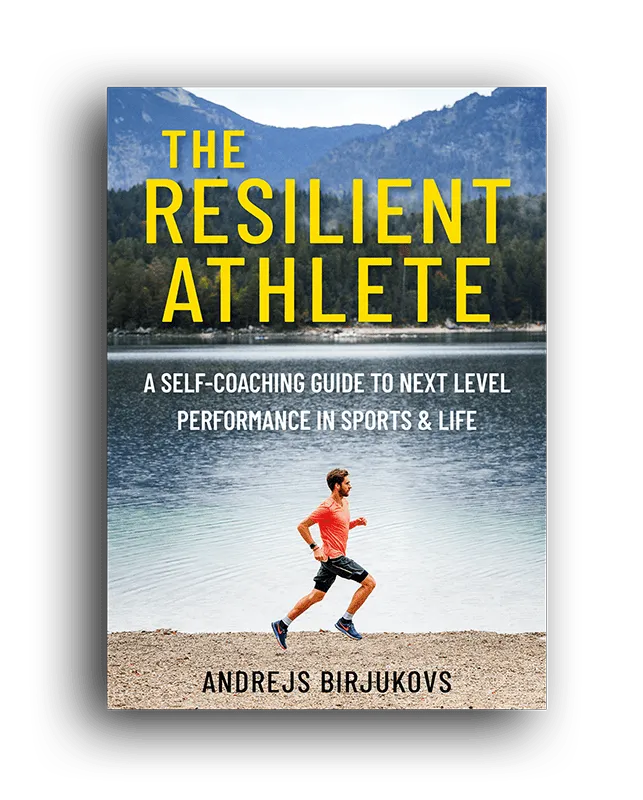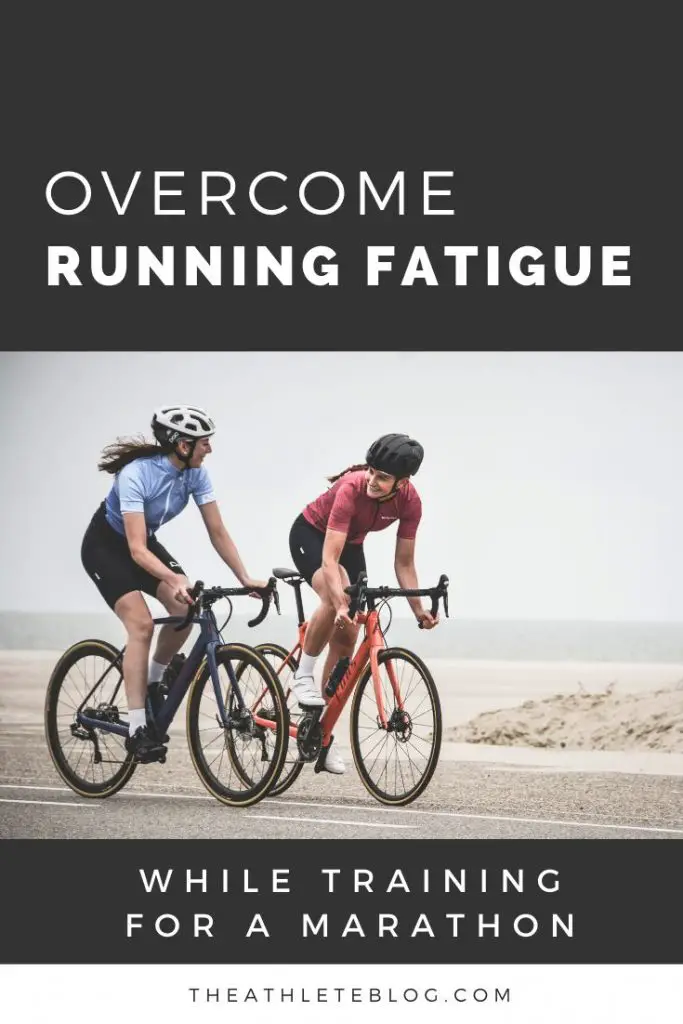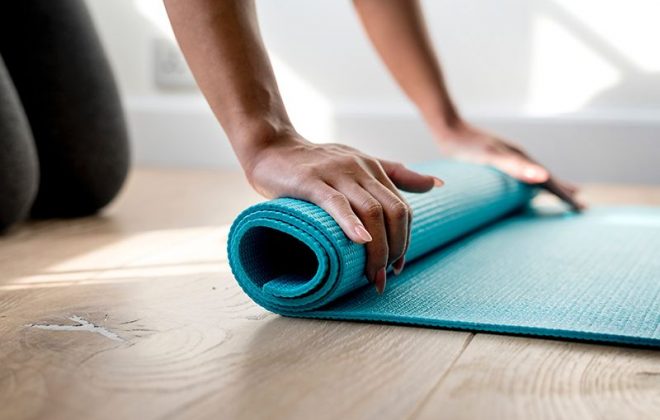How To Overcome Running Fatigue While Training For A Marathon
I tend to spend a lot of time on my feet throughout the day. I walk or bike wherever possible and prefer standing to sitting. However, marathon training only adds more stress to the lower body, so my priority is to overcome running fatigue as much as possible.
Luckily, there is a great way to do it without compromising the training process. And that is cross-training.
Accumulated muscle fatigue is not a good thing
Athletes should aim to keep their overall training fatigue balanced. Training when you are fresh and full of energy builds fitness. So, it’s best to schedule key sessions (like long runs and speed work) after an easy day.
However, when athletes add too much intensity without allowing the body to fully recover, fatigue starts to accumulate. Over time this decreases performance and can even impact mood, motivation and immune system.
Everyone faces fatigue at some point during their training – there’s no other way around it. But it has to be very brief and athletes should be able to recover from it quickly.
Fatigue can be hard to notice sometimes, which is why periods of rest have to be planned in advance.
Once fatigue starts to accumulate, our bodies start to lose the ability to produce energy efficiently. This leads to loss of endurance in short and long terms.
Even if you’re not an endurance athlete, accumulated fatigue will ultimately slow down recovery. It will also slowly bring your mood down like a balloon that is leaking air.
Related: High Intensity Training For Endurance Athletes – How Much Is Too Much?
Training through fatigue is never good. It can be done only at very low intensity to increase the mileage or recover.
In fact, the best way to overcome running fatigue (and any other for that matter) is to prevent it in the first place. A well-organized training plan and effective diet will speed up muscle recovery and prevent fatigue from accumulating too much.
Avoid over training with cross-training
But let’s be honest, training is about building fitness and that is not possible without some degree of fatigue.
Distance running requires both muscular fitness (strength in legs) and aerobic fitness. And most of the time it’s the muscular fitness that causes so much trouble.
Too much running may cause leg muscles and especially hips to tighten up, which impacts the running form and performance. At best it will prevent an athlete from reaching his best. At worst – it may cause an injury like a Runner’s knee or IT Band syndrome.
The main advantage of cross-training is that it targets different muscle groups. For runners, in particular, that will reduce the stress on muscles and joints.

The Resilient Athlete
A Self-Coaching Guide to Next Level Performance in Sports & Life
Are you aiming to become a resilient athlete who is able to withstand any pressure? Be able to jump on any opportunity? Take any challenge life throws at you head on?
Then this book is for you.
Learn moreCross-training is, basically, doing any other sport than your primary one. For runners it can be cycling, swimming, kayaking, stand up paddling. Whatever works for you.
Running is the sport with most impact on the body from all the pounding. So, switching sports is really good for the runners body.
Best cross-training options to overcome running fatigue
As such, cross-training is a form of recovery, as long as you keep the effort fairly low (Zones 1 and 2). It promotes the blood flow in fatigued muscles and, at the same time, maintains (or even improves) the aerobic fitness.
Cycling, in particular, uses same muscle groups and doesn’t put excessive pressure on muscles and joints. This makes it great for recovery, building the aerobic fitness or maintaining the aerobic base that takes so much work to build.

Swimming is another great way to cross-train. Runners will benefit from stronger core, as well as improved ankle flexibility which promotes a more efficient running form.
Another one of my favorite is substituting a running session with core training or even a session of Pilates or yoga. These sessions build strength in core, glutes, hips, hamstrings and generally across the body. That helps to distribute stress evenly across the body, prevent injuries and improve running form.
Related: 5 Core Exercises For Runners To Get Fast & Stay Injury-Free
Did you find this information useful? Share the post with others using the buttons below.
My first marathon training progress
Update: I ran my first marathon and it was a roller coaster of emotions. Read my race report here, if you’re interested.
I am gradually adding more intensity to my sessions, as I am preparing for a 6K run next month. There are increasingly more Zone 3 and Zone 4 efforts in my training plan compared to previous months that will help me build speed and muscular endurance.
Hence the post about how to overcome running fatigue.
It felt quite good. A total of 9 hours of solid training in the books this week – 3 morning swims, 5 runs, bike commutes and even a hike. Below are my running sessions and how they went:
I try to do all my running first thing in the morning or early in the day. That way I can reward myself with sitting and using the public transport if I feel fatigued later.
Speed work. I am currently focusing on 400 meter intervals with 400m rest. This is roughly 1.5 minutes and I found it to be a good middle point to improve speed and form and avoid accumulating fatigue.
Tempo efforts. My tempo efforts currently average around 30 minutes. Not as much as you would expect in preparation for a marathon, but I am planning to increase it after the race next month.
Long runs. I did my first 2-hour-long run this week and my average pace of 5:15 impressed me a lot. It was my first run above 1:30 and I was not sure how my body will respond.
I think I nailed the balance this week and feel very good so far. Fingers crossed I can maintain it throughout next weeks as well.

Tags In
Andrejs
Related Posts
Leave a Reply Cancel reply
GET A FREE TRAINING PLAN
Subscribe to my email list and get access to a free 4-week “back in shape” training plan
You’ll also get two full-body strength sessions and some other goodies!

How did I get here?
Hey there! My name is Andrejs and I am here to inspire, entertain and get you fit for any adventure.
I went from being an over trained pro athlete to an endurance coach sharing how to listen to your body and live life to the fullest.
Traveling, new sports & activities brought new meaning to my training and made it much more effective, fun and enjoyable. And I'm here to help you do the same.


